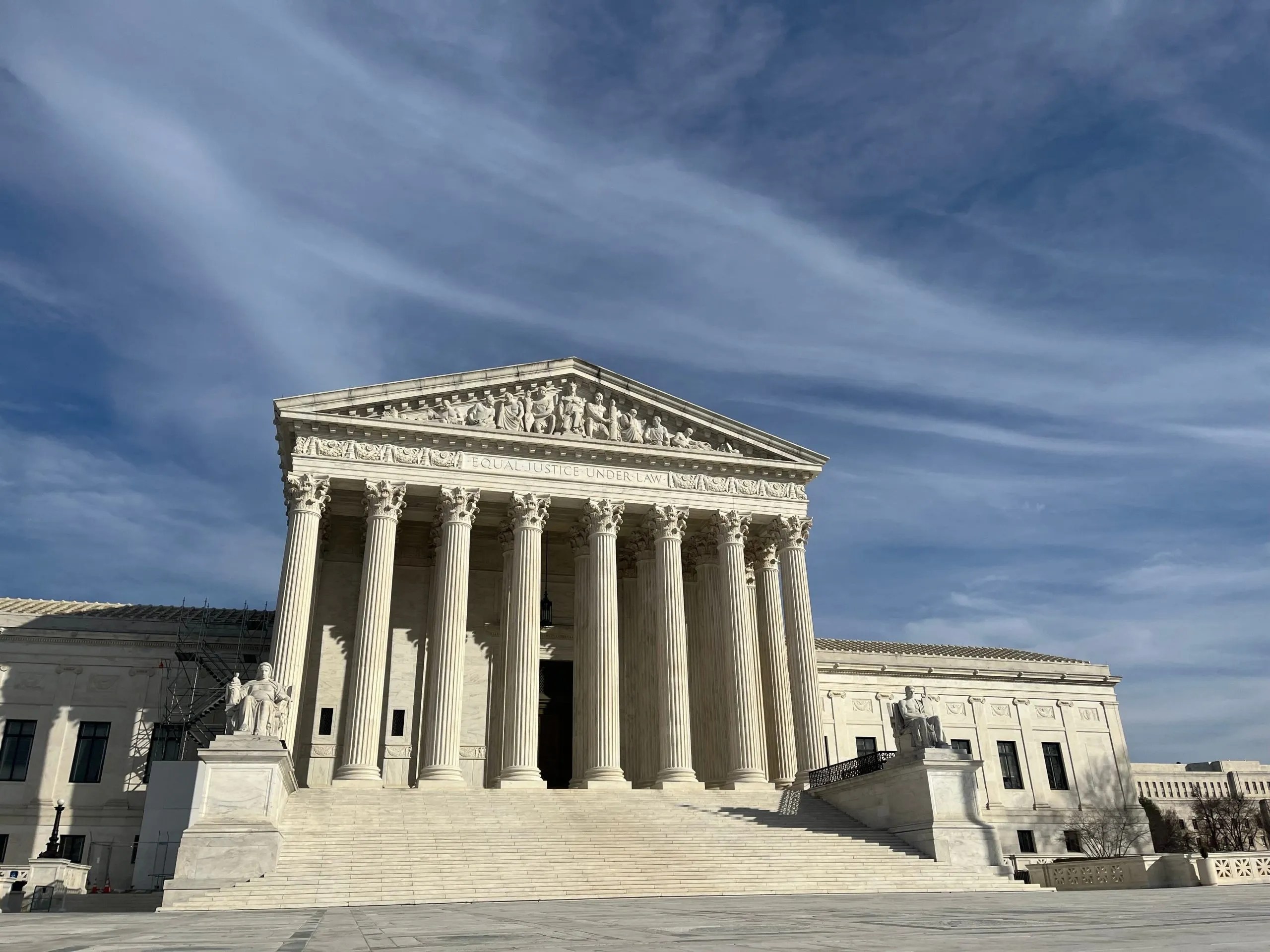Venezuelans ask Supreme Court not to allow Trump administration to end their protected status


Lawyers representing Venezuelan citizens living in the United States under a program that provides them with a safe harbor here urged the Supreme Court on Monday afternoon to leave in place an order by a federal judge in San Francisco that temporarily bars the Trump administration from ending their protected status under that program. In a 40-page filing, UCLA law professor Ahilan Arulanantham wrote that the order by U.S. District Judge Edward Chen “has provided respite” from the harm caused by an earlier order by the Supreme Court “by restoring the status quo. Disturbing it now will cause massive injuries to” the challengers “and their loved ones, including many American children.”
Congress created the program at issue, known as the Temporary Protected Status program, in 1990. It permits the Secretary of Homeland Security to designate a country’s citizens as eligible to remain in the United States and work when they cannot return to their home country because of a natural disaster, armed conflict, or other “extraordinary and temporary conditions” there.
In 2021, then-DHS Secretary Alejandro Mayorkas designated Venezuela under the TPS program. Two years later, Mayorkas redesignated Venezuela under the program (allowing more Venezuelans to apply for the program) and, shortly before the end of the Biden administration, announced that the program would be extended through October 2026.
Soon after the Trump administration took office, the new DHS secretary, Kristi Noem, ended both the 2023 designation of Venezuela under the TPS program and the 2025 extension of that designation.
The National TPS Alliance, a member-led group of TPS holders, and several Venezuelan TPS holders who would be directly affected by Noem’s decision, went to federal court in San Francisco to challenge the termination of the designation and the extension. They contended that the decision violated the federal law governing administrative agencies, because Noem and DHS did not have the power under the law that created the TPS program to end the extension. It also violated the Constitution, they argued, because it was “motivated at least in part by racial animus” – as shown, they said, by Noem’s reference to the TPS holders as “dirtbags.”
On March 31, Chen temporarily barred Noem from ending the protection. He called her conduct “unprecedented,” and he suggested that her decision had been “predicated on negative stereotypes” about Venezuelan migrants.
After the U.S. Court of Appeals for the 9th Circuit declined to pause Chen’s order, U.S. Solicitor General D. John Sauer went to the Supreme Court, asking the justices to intervene. In a brief, unsigned order on May 19, the justices granted Sauer’s request and put Chen’s order on hold, with Justice Ketanji Brown Jackson voicing the lone objection.
When the dispute returned to the lower courts, Chen issued a final decision on Sept. 5 in which he concluded that Noem had acted unlawfully when she terminated the 2023 designation and its extension. Although Chen conceded that the Supreme Court had frozen his March 31 order, he stated, in a footnote, that the justices’ earlier “order only concerns the preliminary relief ordered by this Court in postponing agency action. The Supreme Court’s order did not bar this Court,” he wrote, “from adjudicating the case on the merits and entering a final judgment issuing relief.”
On Sept. 17, the 9th Circuit turned down the government’s request to put Chen’s Sept. 5 ruling on hold. It rejected the Trump administration’s argument that the Supreme Court’s earlier order required it to pause Chen’s most recent decision. “That argument,” the court said, “ignores the text of the Supreme Court’s order and the reality that the Supreme Court did not have the benefit of reviewing the now more fully developed record on which” Chen’s subsequent ruling relied.
Sauer came back to the Supreme Court on Sept. 19, asking the justices to step in. He told them that their “prior order makes the lower courts’ denial of a stay indefensible.” The lower courts’ failure to pause Chen’s ruling, he said, “is the latest addition to an ongoing parade of lower-court decisions that have threatened ‘the hierarchy of the federal court system created by the Constitution and Congress’ by disregarding or defying this Court’s stay orders.”
In their brief on Monday afternoon, the challengers countered that “[i]t should go without saying that” the Supreme Court’s “prior, limited stay order did not foreclose further litigation to a final judgment.” First, they noted, Chen’s recent ruling “grants relief in a different posture and under a different statutory authority.” Among other things, in its previous request for emergency relief, the Trump administration had argued that Chen “had improperly issued a ‘universal’ remedy’” at the preliminary stage. But the law on which Chen relied in issuing his final judgment, the challengers observed, specifically directs courts to “set aside” agency actions – like Noem’s termination of the TPS designation and extension – that do not comply with the law. “Thus,” they concluded, “any concerns this Court may have had about the scope of the district court’s remedy at the preliminary relief stage do not apply here.”
Moreover, the challengers continued, Chen’s order “rests in part on a new claim” that was not at issue last time this case came to the Supreme Court, and the record before the court “is much more developed than the record on which [they] sought preliminary relief.”
Posted in Court News, Emergency appeals and applications
Cases: Noem v. National TPS Alliance